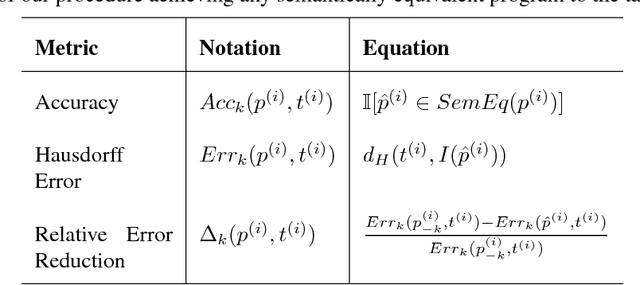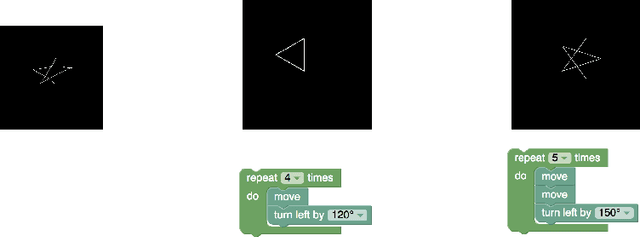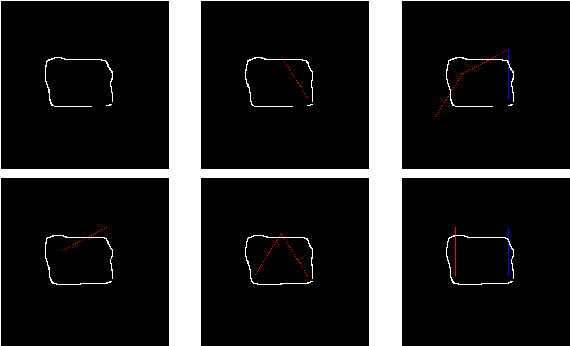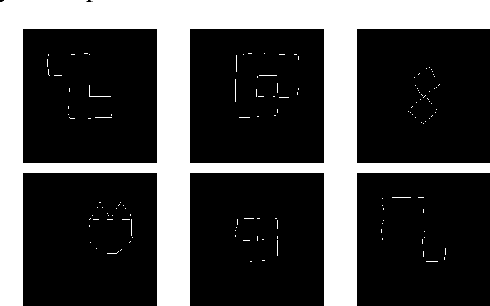Program Synthesis from Visual Specification
Paper and Code
Jun 04, 2018



Program synthesis is the process of automatically translating a specification into computer code. Traditional synthesis settings require a formal, precise specification. Motivated by computer education applications where a student learns to code simple turtle-style drawing programs, we study a novel synthesis setting where only a noisy user-intention drawing is specified. This allows students to sketch their intended output, optionally together with their own incomplete program, to automatically produce a completed program. We formulate this synthesis problem as search in the space of programs, with the score of a state being the Hausdorff distance between the program output and the user drawing. We compare several search algorithms on a corpus consisting of real user drawings and the corresponding programs, and demonstrate that our algorithms can synthesize programs optimally satisfying the specification.
 Add to Chrome
Add to Chrome Add to Firefox
Add to Firefox Add to Edge
Add to Edge